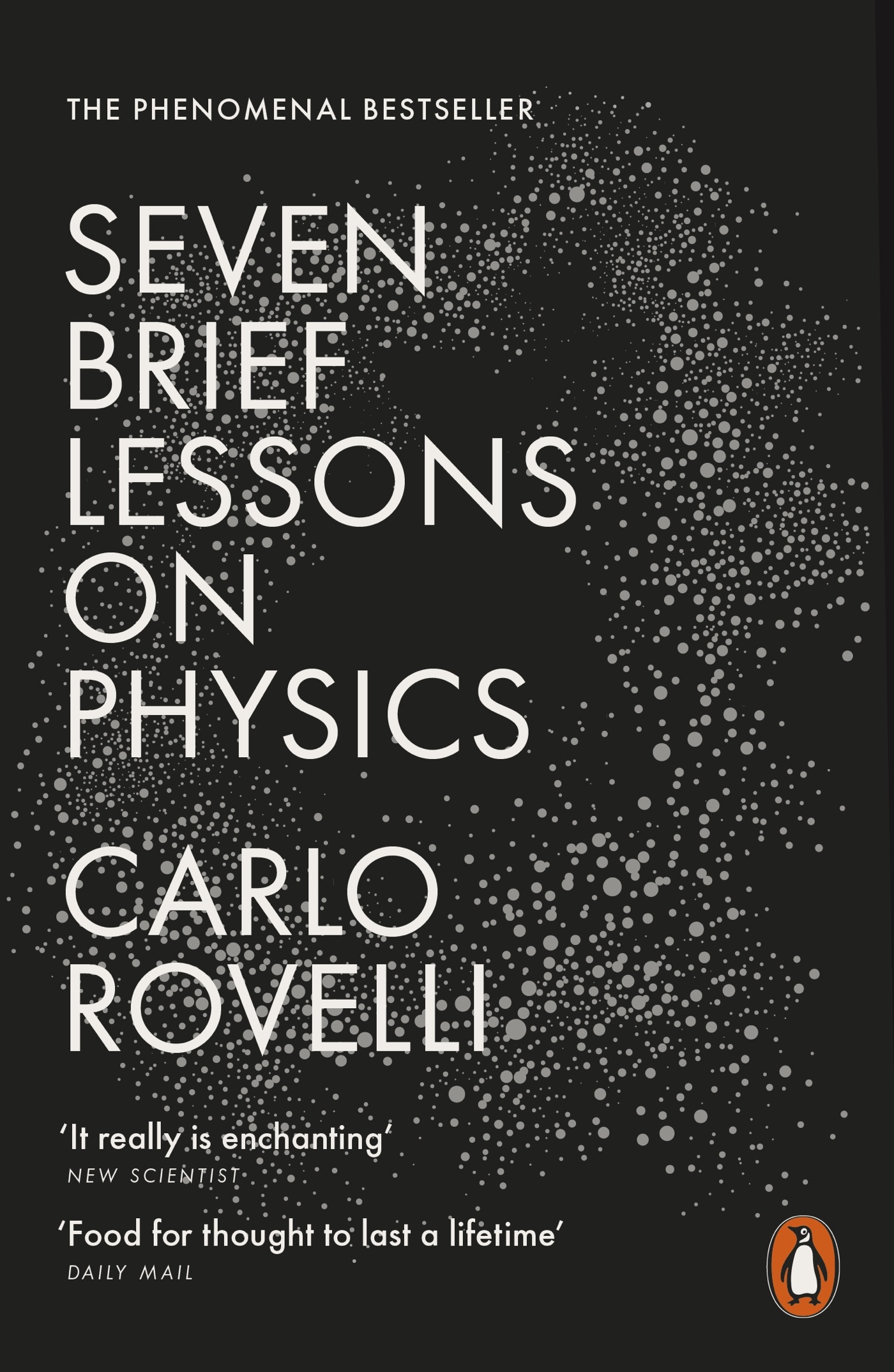Seven Brief Lessons on Physics - Carlo Rovelli

# Metadata
- Author: Carlo Rovelli
- Full Title: Seven Brief Lessons on Physics
- Category: #books
# Highlights
# Preface
science shows us how to better understand the world, but it also reveals to us just how vast is the extent of what is still not known. (Location 24)
# FIRST LESSON The Most Beautiful of Theories
You don’t get anywhere by not ‘wasting’ time – something, unfortunately, which the parents of teenagers tend frequently to forget. (Location 36)
the gravitational field is not diffused through space; the gravitational field is that space itself. This is the idea of the theory of general relativity. (Location 79)
# SECOND LESSON Quanta
Note the wonderful initial ‘It seems to me …’, which recalls the ‘I think …’ with which Darwin introduces in his notebooks the great idea that species evolve, or the ‘hesitation’ spoken of by Faraday when introducing for the first time the revolutionary idea of magnetic fields. Genius hesitates. (Location 146)
each element corresponds to one solution of the main equation of quantum mechanics. The whole of chemistry emerges from a single equation. (Location 161)
# THIRD LESSON The Architecture of the Cosmos
# FOURTH LESSON Particles
A certain number of fields (but why these, exactly?) interacting between themselves with certain forces (but why these forces?) each determined by certain constants (but why precisely these values?) showing certain symmetries (but again, why these?). We’re far from the simplicity of the equations of general relativity, and of quantum mechanics. (Location 278)
In addition, a striking limitation of the Standard Model has appeared in recent years. (Location 288)
it is called ‘dark matter’. Evidence indicates that it is something not described by the Standard Model, otherwise we would see it. Something other than atoms, neutrinos or photons … (Location 291)
# FIFTH LESSON Grains of Space
Our universe may have been born from a bounce in a prior phase, passing through an intermediate phase in which there was neither space nor time. (Location 399)
If we try to put together what we have learnt in the twentieth century about the physical world, the clues point towards something profoundly different from our instinctive understanding of matter, space and time. Loop quantum gravity is an attempt to decipher these clues, and to look a little further into the distance. (Location 403)
# SIXTH LESSON Probability, Time and the Heat of Black Holes
Why does heat go from hot things to cold things, and not vice versa? It is a crucial question, because it relates to the nature of time. In every case in which heat exchange does not occur, or when the heat exchanged is negligible, we see that the future behaves exactly like the past. (Location 418)
We have never seen a pendulum start swinging from a stationary position, with its movement initiated by the energy obtained by absorbing heat from its supports. The difference between past and future only exists when there is heat. (Location 425)
The branch of science which clarifies these things is called statistical physics, and one of its triumphs, beginning with Boltzmann, has been to understand the probabilistic nature of heat and temperature, that is to say, thermodynamics. (Location 454)
Physicists and philosophers have come to the conclusion that the idea of a present that is common to the whole universe is an illusion, and that the universal ‘flow’ of time is a generalization that doesn’t work. (Location 490)
Some philosophers, the most devoted followers of Heidegger among them, conclude that physics is incapable of describing the most fundamental aspects of reality, and dismiss it as a misleading form of knowledge. But many times in the past we have realized that it is our immediate intuitions that are imprecise: (Location 498)
Borrowing words from my Italian editor, ‘what’s non-apparent is much vaster than what’s apparent’. (Location 515)
The heat of black holes is like the Rosetta Stone of physics, written in a combination of three languages – Quantum, Gravitational and Thermodynamic – still awaiting decipherment in order to reveal the true nature of time. (Location 529)
# IN CLOSING Ourselves
It is not against nature to be curious: it is in our nature to be so. (Location 647)
We belong to a short-lived genus of species. All of our cousins are already extinct. What’s more, we do damage. The brutal climate and environmental changes which we have triggered are unlikely to spare us. For the Earth they may turn out to be a small irrelevant blip, but I do not think that we will outlast them unscathed – especially since public and political opinion prefers to ignore the dangers which we are running, hiding our heads in the sand. (Location 653)